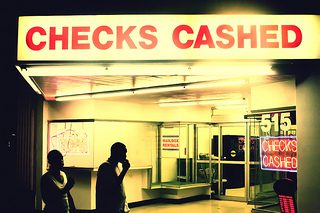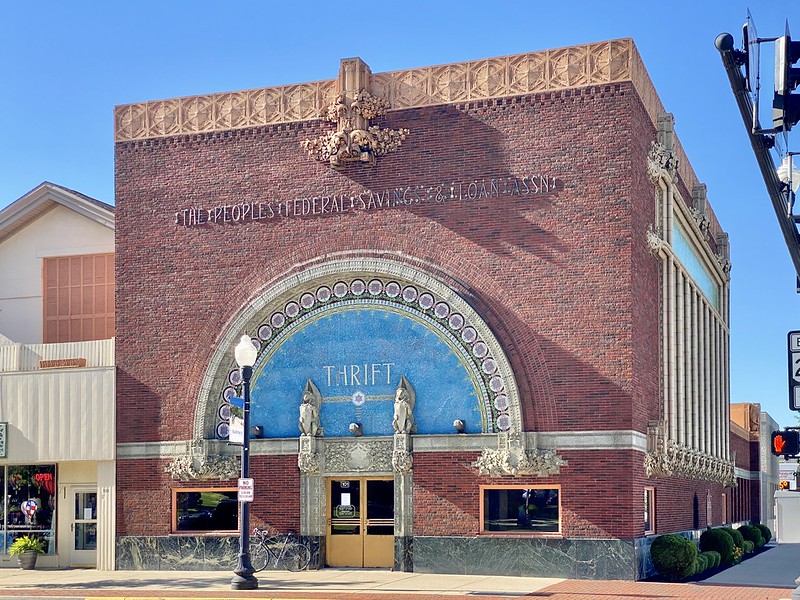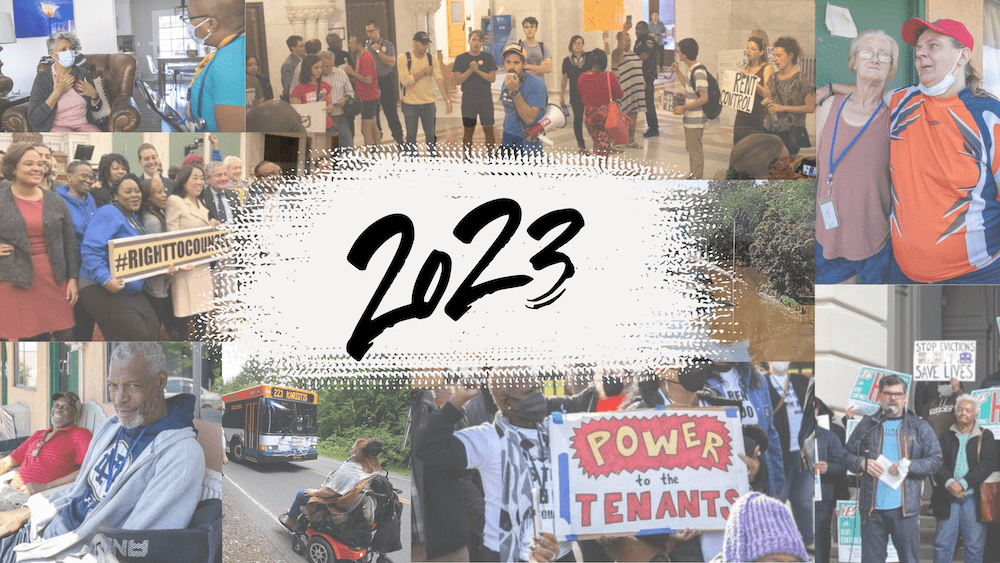
Policy makers, banking officials, people who run credit unions, consumer advocates, and those who work in the alternative financial services (AFS) industry all took part, generating over 100 posts on top of those generated on the publications’ websites. The posts and comments ranged widely and have informed my research as I have continued my work. Shelterforce also took note of the conversation, and asked me to blog about it. I am writing here about some of the main themes from this conversation. In several instances, those who wrote in discussed the practices in their own institutions. I have not verified these practices.
Many of those who commented on my pieces shared similar stories to the ones I relayed in the Atlantic piece: of going to the bank with their parents when they were children, or accompanying family members to the check casher or payday lender. Richard Taub, a University of Chicago professor, reported that he opened a savings account for his now adult daughter so that she could watch the money grow. When they checked her balance on the second visit, they found that she had less money, not more. Kristyna Jones, who both had a bank account at a young age and witnessed family members using AFS business, contends that “people make decisions about financial matters similarly but have different approaches at different strata of income not only because of access but also because of perception and experience.”
Others, both consumers and field professionals wrote about learning on the ground, as I did, why so many low-income people choose to use alternative financial services. The approach I used in my research, to spend a great deal of time working at check cashers and payday lenders, resonated with many readers.
One commented that it made her “think about how removed policy makers can be from what makes everyday life livable.” The perspective of the AFS industry from the point of the worker in the industry helped some readers to understand why so many people make what, to an outsider, can seem like bad choices. Elizabeth Lipke, CEO of Bourns federal credit union in Riverside, Cali., wrote: “It’s time we wake up and stop marginalizing the solutions that work for millions of hardworking people.” Amy Lempert of the Federal Reserve Bank of Philadelphia echoed this sentiment, writing, “It seems to me this issue goes back to the old problem of trying to understand and solve the needs of people, poor or otherwise, without asking them what they want.”
Quite a few respondents work for or with credit unions, many of which have clearly struggled with the issues of how best to meet the needs of customers who are not well served by banks. Hank Hubbard, president of Communicating Arts Credit Union in Detroit, wrote that products such as courtesy pay fees, which CACU offers, “keep me up at night.” Henry Wirz CEO of SAFE credit union in North Highlands, Calif., wrote that his credit union tries “very hard to outcompete the fringe banking operations . . . We have better prices and we offer financial counseling and financial advice that we do not offer. . . But most of the time we are not successful in moving the unbanked to our way of doing things.” For the record, I have not yet done specific research with credit unions, but will begin to fill that gap over the next several months.
A few bankers also commented, including some who reported that their banks remain committed to providing a high level of customer service and, in the case of Portland’s Banner Bank, free coffee and cookies! Brent Warren, Vice President and Community Development Officer at Banner, wrote that his bank “partners with nonprofit organizations to provide financial education to anyone who wants it, regardless of customer status, and we provide a $100 incentive to anyone who completes the FDIC Money Smart financial education curriculum.” Despite this, and the bank’s practice of giving many people a second chance to open an account even when they have CheckSystems issues, “a very significant number of these folks are soon writing checks with insufficient funds in their accounts.”
After reading my work, a couple of respondents seem to be asking the same questions I find myself asking. Richard Keller, a planner and financial educator based in Amherst, Mass. asks: “To what extent does the growth of fringe financial services correlate with the increasing preponderance of low-wage jobs and the high rate of real un- (and under-) employment?” It appears that the high use of alternative financial services may stem from the fact that an increasing number of Americans are living paycheck to paycheck. They have no ability to save, build assets, even pay for regular monthly expenses. When unexpected expenses arise—car repairs, medical bills—they have no way to pay for them. In other words, perhaps we should shift our focus from the suppliers of these services to the conditions that have created such great demand for them.
Perhaps the most heated part of the conversation concerned payday loans, which is particularly interesting given that I didn’t really write about this aspect of the AFS industry. Payday lending is illegal in New York state, where I had worked. I have since worked as both a lender and a collections agent at Check Center, a check casher/payday lender in Oakland, Calif., and will be writing about that experience soon. Stay tuned!
(Photo by Thomas Hawk CC BY-NC)






Comments